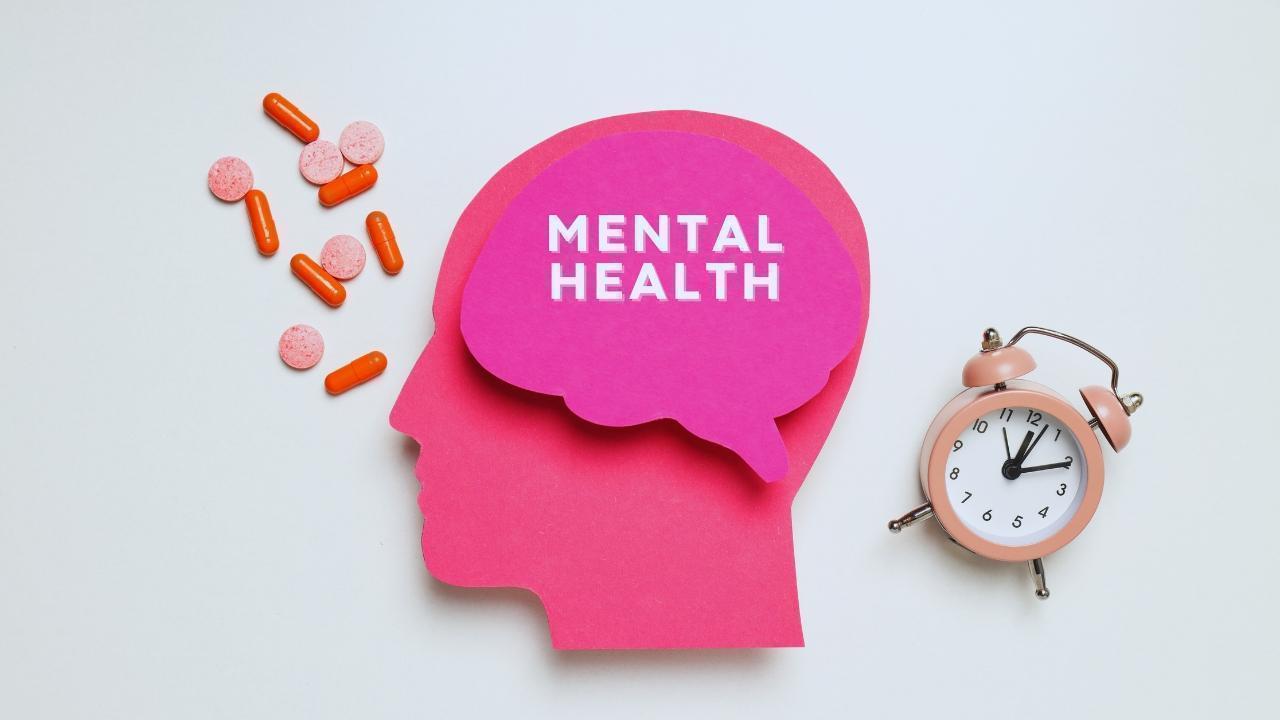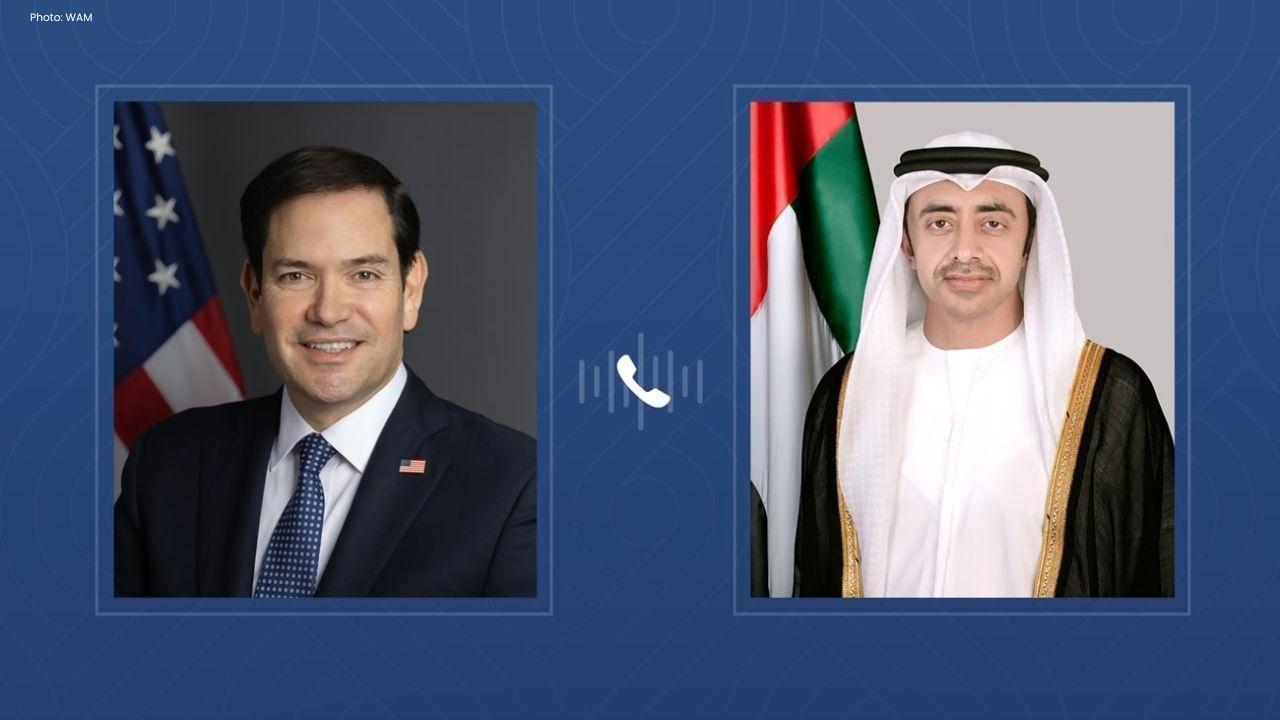
Post by : Anees Nasser
It’s hard to improve what you’re not allowed to talk about. That’s been the reality for many people in the Middle East when it comes to mental health: a quiet crisis lived behind closed doors, whispered about in kitchens and car rides, disguised as “just stress” or “a bad phase.” Yet the past few years have stirred a more honest conversation. More young people are naming anxiety and burnout. More parents are admitting they feel overwhelmed. More workplaces are, at last, asking how their people are coping. The taboo hasn’t vanished, but it’s cracking. And in those cracks, light is getting in—light that can help families, schools, employers and communities make healthier choices, earlier and with more compassion.
Mental health isn’t a niche topic for psychiatrists; it’s a daily-life issue that shapes productivity, relationships, parenting and even the way we treat strangers. In the region, the picture is mixed. Urban centers are building clinics and hotlines, training counselors and opening wellness hubs. Tele-therapy has lowered the threshold to get help discreetly. At the same time, access is uneven. Rural communities have fewer providers. Insurance coverage can be patchy. Language for describing emotions isn’t always taught at home or school, so people know they’re suffering, but don’t know what to call it—let alone where to go. Progress is real, but so are the gaps.
Three forces keep the stigma stubbornly in place. First is social image: “What will people say?” can outweigh “What do you need?” Second is misunderstanding: many still equate counseling with being “crazy,” or imagine that therapy is a lifetime sentence instead of a skill-building process that often has an endpoint. Third is secrecy as a strategy: families fear gossip and prefer silence to support. These habits are understandable in tight-knit communities, but they often turn treatable issues into bigger ones. When problems hide, they grow. When feelings have no words, they spill out as anger, avoidance or aches and pains that never seem to go away.
In many households, faith is the first refuge—and it should be. Prayer, reflection and community support are profound sources of strength. The false choice is thinking one must pick between faith and professional help. They can complement each other. Just as we consult a surgeon for a broken bone without abandoning prayer, we can see a therapist for panic attacks while staying rooted in belief. Framing therapy as a tool, not a worldview, helps families accept it. Spiritual leaders who speak openly about mental wellbeing can reduce shame more quickly than any billboard ever could.
The region’s greatest strength—close family ties—can become pressure when unspoken rules pile up: be strong, don’t complain, don’t bring shame, be grateful. Gratitude matters. So do boundaries. Young adults juggling work, elder care and social expectations may smile on the outside while running on fumes inside. Parents of neurodivergent children can feel isolated by judgmental looks. Couples may avoid counseling because they fear it signals failure, when in reality early guidance often prevents bigger ruptures. A family culture that encourages “How are you, really?” does more for mental health than any app.
Fruit baskets and yoga days are nice; policies are better. True workplace mental health support looks like clear workloads, fair deadlines, reasonable hours, trained managers and confidential access to counseling. It includes return-to-work plans after burnout, compassionate leave for bereavement, and psychological safety to say, “I’m struggling,” without risking your job. Companies that treat mental health as a performance issue to punish lose talent. Those that treat it as a capacity issue to support gain loyalty, productivity and reputation. The math is simple: supported people do better work, stay longer and grow faster.
Teenagers and twenty-somethings are teaching the region new words: boundaries, triggers, overstimulation, sensory needs, executive function. Some elders roll their eyes at the jargon, but the vocabulary is a tool—it breaks the problem into pieces you can address. A student who knows she’s overwhelmed because she has four exams, a part-time job and family duties can ask for accommodations instead of spiraling into self-blame. A university that trains advisors to spot early signs of distress can prevent crises that otherwise show up as absences, plagiarism or sudden drop-offs in performance. Language doesn’t create problems; it reveals them, so we can act.
Across the region, many men learn early to swallow feelings and “handle it.” The costs show up as rage on the road, risky coping, or a stubborn numbness that makes life small. Men don’t need softer expectations; they need safer spaces—places where talking isn’t a betrayal of masculinity but a form of responsibility. Peer groups, confidential helplines, coaching programs and faith-based circles can make a difference. It’s not about replacing strength; it’s about redefining it as the capacity to face discomfort without running from it.
Women often carry a double load—paid work and unpaid care. Add expectations to be endlessly patient and presentable, and exhaustion is almost guaranteed. Maternal mental health deserves special focus: prenatal anxiety, postpartum depression and the pressure to “bounce back” quietly affect thousands. Support looks like flexible schedules, community childcare swaps, nonjudgmental medical care, and families who share the load because they want mothers to thrive, not merely survive. When mothers get help, children benefit, households steady, and entire communities feel the ripple.
Some people in our neighborhoods carry stories the rest of us can barely imagine—displacement, loss, interrupted childhoods, paperwork limbo, crowded housing. Trauma doesn’t always announce itself. It can hide as irritability, insomnia, stomach issues, distrust or the inability to plan. Services that are culturally aware, translated, low-cost and easy to reach can turn survival mode into recovery. Community centers that combine legal aid, language classes and counseling in one place reduce the friction of getting help. Healing is slow, but it accelerates when support lives nearby.
Even the bravest decision—“I need help”—can collapse if the next available appointment is in six weeks or the fee is out of reach. Solutions include public clinics with sliding-scale pricing, employer-funded sessions through insurance, and school-based counselors who can meet students where they already are. Governments can speed licensing to grow the provider pool and incentivize professionals to serve underserved areas. A region that invests in mental health infrastructure isn’t being soft; it’s being smart. The return shows up in fewer hospital visits, better school outcomes and stronger local economies.
For many, the phone is the most private room in the house. Tele-therapy lowers stigma, saves commute time, and opens access to specialists across borders. It works best when platforms are secure, clinicians are licensed in the client’s location, and emergency plans are clear. Hybrid models—alternating in-person and virtual sessions—help clients who travel for work or live far from clinics. Tech can’t replace human warmth, but it can deliver it more consistently to more people.
We teach children math, history and languages. We can also teach them words for feelings, ways to calm their bodies, and simple scripts for asking for help. Classrooms with “feelings corners,” quiet spaces and clear routines reduce behavioral issues. Teachers trained to notice withdrawal and agitation can refer students early. Parent workshops demystify support: what is therapy, what happens inside a session, how progress is measured, when to worry, and when to give it time. Emotional literacy isn’t indulgent; it’s insurance for future adults who will one day run companies, families and countries.
Stories change minds faster than statistics. When dramas, podcasts and talk shows portray therapy accurately—normal people with real jobs learning practical tools—the public recalibrates. When headlines avoid sensational language and respect privacy, they signal that mental health is health, not spectacle. Influencers who share honestly but responsibly can nudge followers toward help. The sweet spot is authenticity without glamorizing distress or trivializing treatment.
Words shape what feels possible. Swapping “What’s wrong with you?” for “What happened, and how are you coping?” moves a conversation from blame to care. Saying “I live with anxiety” instead of “I am anxious” reminds us that conditions don’t define people. Even small edits—calling someone “a person with schizophrenia” rather than “a schizophrenic”—protect dignity. Language won’t heal everything, but it can stop adding harm.
You don’t need a skyscraper budget to move the needle. Neighborhood centers can host weekly circles led by trained facilitators. Mosques, churches and community halls can run stress-management workshops. Libraries can stock multilingual guides on grief, parenting and sleep. Sports clubs can partner with counselors to teach breathwork and focus to teenagers who’d never set foot in a clinic but will show up for football. When support is woven into everyday places, more people use it.
Systemic change turns goodwill into guarantees. When insurance covers therapy like any other medical service, more people get preventive care instead of waiting for crises. When national policies fund school counselors and community clinics, help becomes a right, not a privilege. When universities require basic mental health training for resident advisors and supervisors, early warning signs don’t get missed. Policy is culture at scale. It signals what we value and who we refuse to leave behind.
Not all help is helpful. The region needs more accredited programs for psychologists, counselors, social workers and psychiatric nurses, with supervised practice and continued education. Peer support programs should include screening, referral protocols and boundaries training. Great intentions need guardrails. The goal is simple: anyone who reaches out should meet competence and care on the first try, not a confusing maze.
We talk about therapy and medication for good reason, but the daily basics—sleep, nutrition, movement, sunlight, social connection—carry surprising weight. Consistent sleep steadies mood and attention. Regular meals with protein and fiber smooth energy. Movement reduces anxiety and helps with trauma recovery by letting the body discharge stress. Sunlight anchors the body clock. Brief daily time with people who make you laugh protects against isolation. These aren’t cures; they’re conditions that make healing easier.
Phones are both lifelines and traps. Doomscrolling spikes anxiety; constant notifications fracture focus; comparison fuels low mood. Setting app limits, muting non-urgent chats after hours, charging devices outside the bedroom and scheduling “offline windows” sound basic, but they work. Parents can model these habits and involve teens in setting joint rules. Technology should serve life, not dominate it.
Start small, and start soon. Pick a quiet moment. Say what you’ve noticed: “You’ve been quieter and canceling plans.” Share concern without diagnosing: “I care and want to help.” Offer one concrete step: “Could we look up a counselor together?” If they refuse, keep the door open and check in again. If there’s talk of self-harm or harm to others, take it seriously and seek immediate professional guidance. You are not a therapist—and you don’t have to be—to make a life-changing difference.
A realistic plan for the region could rest on four pillars. Access: expand community clinics, integrate counselors in schools and primary care, and subsidize tele-therapy for low-income households. Protection: mandate insurance parity, enforce confidentiality, and set workplace standards for reasonable hours. Education: nationwide campaigns led by trusted voices, emotional literacy in school curricula, and manager training in every sector. Quality: scale accredited training programs, require supervision for new practitioners, and build local research to tailor care to culture and language. None of this is quick, but each step compounds. Ten years from now, we could look back and wonder why we waited so long.
The real shift happens when mental health stops being a forbidden topic and starts being a shared toolkit—something families, teachers, managers, coaches and faith leaders all know how to support. That future isn’t utopian; it’s practical. It looks like shorter lines at emergency rooms, calmer classrooms, safer worksites, more resilient small businesses, and households that argue less and listen more. The region doesn’t need to abandon its values to get there. It needs to apply those values—care for family, respect for community, reverence for life—to the interior world as much as the exterior one. The silence has done its job. It kept struggle hidden. Now it’s time for speech—to name what hurts, and to work, together, on what helps.
This article is intended for general informational purposes and should not be taken as medical or psychological advice. If you or someone you know is experiencing significant distress, please seek help from a qualified healthcare professional or trusted local support service.










Curry Powers Warriors to Nail-Biting 109-108 Victory Against Spurs
Stephen Curry's 49 points propel the Warriors to a dramatic 109-108 NBA Cup triumph over the Spurs,

India Advances to Semi-Finals After Thrashing USA in Women’s Blind T20 World Cup
India secured a dominant ten-wicket victory over the USA, advancing to the semi-finals in the Women’

South Africa's Early Advantage as India Struggles on Day Two
On Day Two, India reached 138-4 as South Africa took three early wickets, complicating matters with

Kenta Nishimoto Defeats Lakshya Sen in Japan Masters Semifinal
Lakshya Sen's journey in the Japan Masters ends after losing to Kenta Nishimoto 19-21, 21-14, 12-21

Kenta Nishimoto Defeats Lakshya Sen in Japan Masters Semifinals
Lakshya Sen's run at the Japan Masters concludes with a loss to Kenta Nishimoto in the semifinals, 1

Major IPL Trade: Jadeja Joins Royals as CSK Signs Samson
In a significant IPL trade, CSK has acquired Sanju Samson from Rajasthan Royals in exchange for Ravi